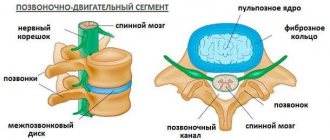It happens that a child is naturally ahead of his peers in development - he knows and understands more than the children from his yard or kindergarten group, he learns to read and write on his own, without the help of his parents, masters mathematical rules, and reasons like an adult. There is no doubt about the genius abilities of such guys. At school they study “excellently”, science and literacy fascinate them, and they do not lose interest in it.
Often in television programs and intellectual quizzes we see children who know more than adults about space, the laws of physics and mathematics, speak foreign languages, and understand complex diagrams and scientific theories. Little geniuses—that’s what adults say about them.
Probably, many parents dream of their children having brilliant mental abilities. For this purpose, they create conditions for their development in advance: they enroll in educational clubs, develop memory, speech and attention using special game techniques, and before entering the first grade, they try to teach them not only to read and write, but also to solve equations.
A child, when he is interested in learning, quickly learns new material. His parents encourage him, praise him, feed his self-esteem with the words that he should be the smartest, the best, the first student in the class. So, a child, without noticing it, can acquire the “syndrome” of an excellent student.
What distinguishes these children from their peers? They always have their homework completed, they do not want to go out with friends if they have not prepared all their homework. When choosing between a book and a walk in the yard, these children will prefer a book, because gaining knowledge is more important for them - this is a priority in life, which was formed by their parents. They always get A's, if the grade turns out to be lower by a point, they can worry very much, cry, and not sleep at night until they correct it. You can find out how such children live and what happens to their childhood by reading this article.
General information about the syndrome
Excellent student syndrome is a heterogeneous phenomenon. It combines the desire to achieve recognition in any matter and extreme self-doubt. The desire to earn love and parental approval through good grades is combined with the constant fear of being punished due to bad grades. This can lead to the development of psychological problems and complexes, for example, an inferiority complex.
Excellent student syndrome is a heterogeneous phenomenon
What to do if your child already has this complex?
Psychological training for a teenager To help yourself or your child, you first need to understand the causes of excellent student syndrome. In children, excellent student syndrome most often occurs due to lack of attention or love from parents. With good grades, the child unconsciously tries to earn extra praise.
Seeing a student’s painful reaction to his grades, try to show your love openly. More often, take an interest not in grades, but in the learning process itself - what you studied in biology, what book was discussed in literature, how the excursion to the museum went, and why the English teacher gave such a big task.
Show sincere interest in the child and his interaction with peers, teachers, listen to him. If a child wants to tell you something, praise if you feel proud of the achievements of your son or daughter, but better not for grades, but for the desire, for the attempt, even if it was not successful. Teach your child that life requires more than just victories, because failures are a great way to learn your strengths and weaknesses and understand what else you can work on.
If the child himself strives to demonstrate his success - “look, mom, I got two A’s today” - still try to avoid praising precisely for a high score. “You are so diligent, I saw how you studied a poem for three hours yesterday, it’s great that the literature teacher also appreciated it!” - praise the child himself, his hard work, diligence and diligence, and not the number in the diary.
It is very important to remind both yourself and your child that time spent with family is wonderful in itself. Even if you're just watching a movie on TV or lying in the grass looking at the clouds. Teach your child to show interest in the world around him and to love what he already has.
Symptoms: how the syndrome manifests itself in adults and children
In children, excellent student syndrome manifests itself in the form of the following signs:
- fluctuating self-esteem. The baby thinks of himself well if he is praised, and bad if he is blamed;
- the child tries to get a high grade at all costs. Lies and hiding bad grades can be used;
- a gloating attitude towards the failures of other children and jealousy of their successes;
- inadequate emotional reaction to lack of praise - the baby may cry if the work he does does not meet with approval;
- fear of making mistakes. A child can give up a dictation or test at any time due to a small blot, which, as it seems to him, reduces all further efforts to nothing.
How to overcome excellent student syndrome and change everything
Almost every schoolchild has heard the phrase “You need to study well.” For some, “studying well” means being an excellent student, and for others, it means participating in specialized Olympiads and going to training camps and rallies. Our blogger Dasha Dedenko tells how she overcame the complex of an excellent student and how specialized camps helped her learn more about the world.
First grade. Newsletter
Valuable advice and invaluable support for parents of first-graders
In any class of every school you can find children in the first desks who always answer the teacher’s questions, try to do everything perfectly and never miss school classes! If you didn’t find such a person in the class, then most likely this person is you.
Excellent students are responsible, organized and efficient people, have high academic achievements, and prefer to do everything perfectly. Many in the class are jealous of their excellent grades, and, of course, they want to be in their place.
Throughout elementary and middle school, I myself strived to become an excellent student. It was a cherished dream to receive a certificate of merit for excellent studies at the final assessment at the end of the year. From the first grade I was told that I could and should be an “ideal student,” but throughout all nine years of study I fell just a little short of my cherished goal. In elementary school, an annoying misunderstanding was a “B” in mathematics, and in middle school, the “perfect picture” was spoiled by “B” grades in physics and chemistry.
I remember my feelings and understand that I felt constant tension and dissatisfaction with myself. It’s as if I’m participating in some kind of endless Olympic games and constantly taking a disappointing fourth place.
At that moment, I was afraid to miss school: what if I missed something and wouldn’t be able to catch up with the program later? What will the parents think?! They really want to see the gold medal “for academic success” on my chest. Did I really want this myself? In the ninth grade, I realized that a red certificate would remain an unattainable dream for me, and in the 11th grade I would not even see a gold medal.
To be honest, I gave up. Mostly due to the new conditions for receiving a gold medal “for academic excellence”
Now only those who take specialized mathematics at the Unified State Exam can get it! Eh, okay, if I could just pass, but I need 75 points! Really assessing my strengths, I decided not to take specialized mathematics, which means that the dream of a medal will remain unrealized.
Previously, I dreamed of seeing only the highest scores on the report card, because of this I was terrified of getting sick and missing school. We can say that the first step towards getting rid of the “excellent student syndrome” was taken at the end of the seventh grade. I took part in a competitive selection to participate in a shift at the All-Russian Children's, the shift began at the end of May, and I had to leave even earlier. The departure dates coincided with the dates of the final annual tests. Having worried, I went to submit all the work ahead of schedule. Suddenly it turned out that there was nothing wrong with this.
Causes of excellent student syndrome
A child may develop excellent student syndrome for several reasons:
- Due to the fact that parents praise their child only for A's.
- Parents may try to realize their unfulfilled dreams in their children and thus compensate for their failures.
- Children with low self-esteem are more likely to display the syndrome.
- The teacher can influence the child by highlighting only successful children and ignoring the achievements of the rest.
- The atmosphere of the children's team is also important - how other children treat grades, how the leader from the company treats the child, and the child himself will react to his grades.
In adults, the excellent student complex originates from childhood, but not always. A series of consecutive failures can lead to it. A person may begin to feel that if he tried harder, he would achieve more. And, although not everything in our lives depends on ourselves, a connection is fixed in the minds of such people: failure due to imperfection.
Where does this excellent student syndrome come from?
Most often, it is nurtured in the child by the parents themselves, making excessive demands. “Why do you have a B in math? There must be an A!”, “the only possible grade is a five,” - all such phrases are translated by the student as “I’m good only if I get an excellent grade.” And although most adults are well aware that grades often have little to do with real knowledge, they continue to insist that only the highest score be in the diary - otherwise, they say, they completely relaxed - thereby returning to their childhood memories and to their relationships with their parents.
Sometimes an A and successful studies are the only way for a child to be noticed and recognized in the family. For him, good grades become a way to get a piece of attention from the people closest to him, because without excellent points in his diary, no one simply notices him.
Does this mean that all excellent students develop this syndrome in one way or another? Not at all. Children who are self-confident and not dependent on the opinions of others may also know the subject perfectly well. But what distinguishes healthy excellent students from those with “excellent student syndrome” is that they will not cry over a grade book with a C and beg the teacher not to put a grade in the grade book and schedule a retake.
How to cope with excellent student syndrome?
First of all, it is worth understanding whether it is necessary to get rid of the excellent student complex. The answer is yes. The complex can have the following consequences in children:
- Inability to highlight the main thing and waste of time on trifles. The child is busy making sure the problem is written down correctly in the notebook and does not have time to solve it.
- Fear of starting a new business if there is no confidence in success. In the future, this will greatly narrow the range of a person’s possibilities.
- Lack of free time and high demands in relation to other children can leave a child without friends and unlearn how to communicate normally.
- Constant overexertion - the child works all the time, bringing himself to the point of physical and moral exhaustion.
- Depression due to lack of praise. Excellent students are praised less often than C students, which is why they suffer.
In adolescence, and especially in adulthood, all these consequences are aggravated, acquiring new and new effects:
- Maximalism, in which a person is afraid of making a mistake and, in order to reduce the burden of responsibility, refuses a promotion or personal life.
- Loss of one's own individuality due to following a chosen pattern.
- People with the syndrome are constantly trying to teach other individuals how to live correctly. This behavior leads to conflicts.
- Time is wasted on trifles, and the important things - personal life, family - fade into the background.
- Health difficulties arise: headaches, various neuroses and mental problems (for example, anorexia), fatigue, insomnia.
Many of these consequences are very serious and can significantly harm a person.
This disease may cause headaches.
How to motivate and not devalue
Photo from the site protvoysport.ru
— What words or actions can provoke “excellent student syndrome” in a child?
- For example, when they tell a child every time: “When you bring an A, you’ve done well, there will be a cake for you!” At the same time, it is broadcast that, for example, a four is not a result at all. And so any efforts of the child are devalued.
Punishment by deprivation of sweets or a tablet if there is no “A” is also a provocation.
It happens that after receiving a bad grade, a child is ignored, so that when he comes home, he encounters his mother - the Snow Queen.
For greater reliability, they scare the child: “If you study poorly, you will become a janitor!” At the same time, academic success is clearly linked to further success in life and career.
It happens that parents give their child pocket money for an A, and here the “A at any cost” principle comes into play most quickly.
— How to properly motivate a child to study?
— There is no need to focus on super results, there is no need to say: “You must be the first, the best, then we will be proud of you.” Even if a child doesn’t get first place in competitions, we should be happy that he participated in them honestly and to the best of his ability. You need to reward for any good grades, and for B's too.
I have a classmate who now teaches at Skolkovo and teaches businessmen how to make millions. He is a successful business coach and regularly travels to the Silicate Valley. So at school he was a C student. That is, there is no direct connection between a child’s grades in school and his future success in life.
It is important to talk to your child about love for no reason, so that he understands that he is loved because he is, and not because he brought an excellent mark.
My daughter is a first grader, they don’t give them grades, but they give them stickers. And so she comes from school and says: “One girl has 20 stickers, and I have 15, and I also want 20!” And I can already feel which way the wind is blowing, and I tell her: “Think about the guys who have 5 stickers or none. Has this made them worse?
That is, I say all the time: “I’m very pleased that you have so many stickers” (I don’t devalue success). But at the same time I try to make her understand:
the mark is not equal to the person. There are many things in a person. One studies with straight A's, and the other rides a horse or sings like Orpheus.
Otherwise, a chain reaction results: at work you owe your boss, you need to bring more money to your family; You need to be an ideal housewife at home, children must study ideally...
As soon as one person with “excellent student syndrome” appears in the family, the whole family is affected by the spirit of internal competition.
We brand ourselves as a loser, and he shouts at us: “Accept me, relax, stop fighting me!” It’s like with sins - we struggle and struggle, and changes begin only when we accept ourselves, including those who are rejected and weak.
When a child receives a bad grade, do not scold him or say the phrase “next time you will get better.” Tell us about how you got a bad mark, remember how you felt then. Tell him that you understand perfectly well how upset he is right now. That your grades did not prevent you from getting ahead in life, getting your current job, starting a family, giving birth to him.
There is a wonderful English proverb - “don’t educate children, educate yourself.” Don't torment your child with directives, just set a personal example.
But if a parent talks about the benefits of a healthy lifestyle with a cigarette in hand, the child very quickly understands that there are double standards.
In addition, try to diversify your child's activities, do not limit him only to school. Try to notice your child’s abilities from childhood. If he draws, send him to a drawing club, but don’t develop even these hobbies in a directive manner. If a child doesn’t want to go to class today, there is no need to force him.
If a child goes to a class and changes his mind a month later, there is no need to scold him - it is normal for children under fifteen to change their decisions and interests.
This is how a child tests the boundaries of his capabilities and abilities, this is normal.
And in general, remember that evaluation criteria may change over time - “what is good for a Russian is death for a German,” or what was valued yesterday turns out to be completely useless today.
Helping a child with excellent student syndrome
Parents themselves can help their child overcome the complex. To do this, they need to adhere to the following recommendations:
- Reduce the level of requirements for the student if they do not correspond to his abilities. Parents should also understand that grades are important, but they do not determine the future of the child, but his ability to learn and discover something new.
- Show that you love your child not because of excellent grades, but because he exists. Assessment in itself does not change children for the better or for the worse.
- Do not compare your baby with those who seem smarter and better to you, this will only cause complexes and resentment.
- Tell your child that making mistakes is not only not scary, but also normal.
- Develop your student's optimism and sense of humor. This will not only make it easier for him to accept criticism, but also to find a common language with his peers.
Children have little free time
Typically, children whose development has been supervised by adults almost from the cradle, and who are accustomed to being the best - in the class, at a school event, among their peers - quickly get used to the fact that study becomes their main activity. They feel bad if something prevents them from preparing their homework on time, and they feel guilty when for some reason they did not do it on time. Successful learning becomes their goal in life from an early age.
Therefore, children with excellent student syndrome have almost no free time to devote to communicating with friends, playing, reading children's books and other children's activities. They consider all this a waste of time; the most important thing for them is to be the best and the smartest.
A child, if he devotes all his time to studying, is deprived of his childhood. From an early age, such children resemble small adults. They don’t know how to spontaneously rejoice, fool around, laugh just like that, or come up with pranks. They may be deprived of the endless activity that is inherent in children.
Studying with excellent marks is wonderful and possible, necessary. But it is worth remembering that the natural children's environment is not endless lessons and races for championship medals, but games, screaming, laughing, running, jumping, climbing trees, exploring the secluded corners of the yard, balls, bicycles, arguing with friends and real friendship. Allowing children to be themselves in childhood is one of the most important conditions that parents can and should create for them if they want them to be truly happy.
How to rid yourself of the excellent student complex?
In order to help yourself, you should listen to the following advice:
- sometimes allow yourself a little negligence. No one will see small imperfections, and you will make sure that you are not criticized and condemned all the time - you do it yourself;
- learn to enjoy the work, not the movement towards the goal. What you love always goes better;
- give someone some of your responsibilities at work and at home, don’t take it all on yourself, learn to relax;
- even in criticism, find reasons to praise yourself, do not dwell on failures;
- develop your teamwork skills. Look more leniently at the work of your comrades, do not try to redo it. It’s even better if this happens in an unfamiliar environment or a new field of activity.
Love yourself, and the result will not keep you waiting. And an excellent result in itself will not increase self-esteem. And no one can please absolutely everyone, so why not start treating yourself well first.
Why is excellent student syndrome dangerous? Methodological development on the topic
Memo for parents
Why is excellent student syndrome dangerous?
and how to help your child
get rid of it.
Dear parents!
It's good when your child is the best in everything, including academics. But in order to achieve this, you most often place very strict demands on your offspring, and as confirmation of the success of your children, you want to see only good grades in their diaries. But are high scores and excellent studies as important as it might seem at first glance?
Undoubtedly, if a child strives for knowledge, shows obedience, does not shirk his lessons and brings home excellent grades, this is very good. However, among such children quite often you can find those who are susceptible to the so-called “excellent student syndrome,” which is perceived by many parents as a real gift, and not as a problem.
The main signs of excellent student syndrome:
- Receives any criticism and comments painfully;
- Shows jealousy when others receive excellent grades or praise.
- Easily sacrifices entertainment, hobbies or communication with friends for the sake of academic success.
- In case of failure in studies, the child develops apathy. He may withdraw into himself and become depressed.
- Has unstable self-esteem. If you praise it, it is greatly overestimated; if you criticize it, it decreases significantly.
- If you forget to praise a child, he becomes very upset and may even cry.
- In order to get an excellent grade, he may well deceive or cheat.
- The main motive in studying for a child is to get an excellent grade at any cost, as well as to gain the approval and admiration of others.
Problems that excellent student syndrome can lead to:
For children with an excellent student complex, studying is the meaning of life, and grades are an indicator of “correctness.” At the same time, they do not strive for a specific result, but to do everything in accordance with a certain standard, since they are confident that they will be good only if they do everything flawlessly. This gives them the inability to concentrate on the main thing. For example, when performing any work, the main energy and time are not spent on completing a specific task, but are spent on the correct execution of minor details.
Due to the enormous fear of making mistakes, an excellent student will never decide to take on a task unless he is firmly convinced that he can cope with it perfectly. Consequently, in the future the range of its possibilities will narrow significantly. People who have experience of failure cope with life's difficulties much easier and faster than those who could not get it.
It often happens that excellent students have problems communicating with peers; it is difficult for them to make acquaintances and close friends. This happens because such children place too high demands not only on themselves, but also on others. Also, the lack of friends may be a consequence of being too busy or having too much self-esteem. All this will definitely affect adult life. Lack of communication in childhood can cause problems with communication skills and relationships with the opposite sex.
Excellent student syndrome in adults can manifest itself as constant dissatisfaction with one's achievements, life, work and others. Such people are very sensitive to criticism and their own failures, after which they usually give up and fall into deep depression.
Excellent student syndrome in a child may occur due to:
- Low self-esteem or inferiority complex. Children who think that they are defective in some way try to compensate for this with excellent studies.
- Natural need for recognition and approval. Usually, this is an innate character trait that needs to be noticed in time and try to somewhat smooth it out.
- Desires to earn the love of parents.
- Fear of being punished. Such children are characterized by timidity and increased discipline; they are afraid of disappointing their parents or teachers.
How to deal with
excellent student syndrome:
- Some parents themselves attach excessive importance to grades, perceiving them as something very valuable, and pass this attitude on to their children. As a result, the child lives with the feeling that almost everything depends on his grade. This leads to constant tension, fears of not being able to cope with the task, and fear of disappointing parents. The main task of the parents of such children is to understand for themselves and convey to the child the idea that a high grade is not the main goal in life.
- There is no need to demand from a child something that he simply cannot cope with. Children's capabilities may not always meet the requirements of adults. It is not at all necessary for a child to be successful in everything; it is better to pay attention to what he shows the greatest abilities for and help him develop in this direction.
- There is no need to constantly convince a child of his uniqueness; these words are not support for all children; for some, this can cause harm.
- Let your child know that you will always love him, and this will not be affected by any assessments, that he does not need to make extra efforts just to achieve your affection.
- If your child is completely immersed in school, teach him to rest and relax. To do this, let him go for a walk, invite the children to your house. Spend more time with him, walk in the forest, in the park, visit children's entertainment centers.
- Seeing that your child is trying, do not forget to encourage and praise him, even if he does not succeed. Let him know that, first of all, his desire to learn and effort are important to you, and not the final result. If he sets himself the goal of becoming an excellent student only in order to earn praise, it is unlikely that this will lead to something good.












